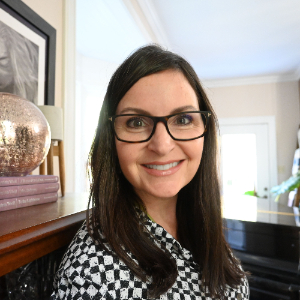
057 | The Food Bank Problem: Show Notes
Oct 30, 2025Episode 57 | The Good Think
Food banks are often seen as a symbol of community kindness—neighbors helping neighbors in times of hardship. But what if that generosity also conceals a deeper issue? In Episode 57 of The Good Think, Dr. Denaige McDonnell explores the food bank paradox: how a system built on goodwill now sustains a public failure. We’re not here to argue charity is bad—it’s done immense good—but we are here to ask tough questions. Why do food banks still exist in one of the wealthiest nations on earth? And what does their expansion reveal about our political, economic, and moral priorities?
What We're Really Talking About
This isn’t just a story about hunger—it’s about governance, responsibility, and economics. The modern food bank isn’t merely a warehouse of cans; it’s a second-tier welfare system, run on unpaid labor and public donations, quietly managed by the private sector. It serves as a societal workaround—addressing the symptoms of poverty while leaving its causes untouched. This episode peels back the surface to examine the structural forces that keep food banks full and politicians off the hook.
Where Food Banks Came From
Food banks weren’t always part of the landscape. The first was founded in Arizona in 1967, with Canada’s debut in Edmonton in 1981. Each began as a temporary fix—meant to plug gaps during economic downturns. The assumption? Once the economy rebounded, the food bank would vanish.
But it didn’t.
Instead, food banks multiplied. By 2025, there were over 800 in Canada alone, facilitating more than 2.2 million visits per month. What started as emergency aid has become a normalized, even expected, method of food distribution—a quiet admission that the safety net has frayed.
How Food Banks Have Changed
What began as grassroots compassion has evolved into a complex system intertwined with corporate sponsorships, logistics infrastructure, and public policy avoidance. Grocery stores donate food, yes—but they also benefit from tax breaks, reduced waste costs, and improved brand image. Some food banks even use public checkout donations to purchase groceries—sometimes from the same stores that collect the funds. Volunteers, meanwhile, give their time freely, performing the work of public institutions without compensation.
The emotional tone of charity remains, but the scale and economics suggest something else: this is now a parallel system, one that is deeply embedded and increasingly industrialized.
Design Flaws in the System
Here’s the uncomfortable truth: food banks are not solving hunger. Despite decades of expansion, food insecurity in Canada has nearly doubled since 2005. While the food bank system may buffer hardship, it doesn’t change the conditions that cause it.
Food charity is also inefficient. People donate individual food items at retail prices, while food banks must manage transport, warehousing, and distribution—creating duplicate infrastructure alongside the regular food economy. The real problem isn’t a lack of food; it’s a lack of income. And yet we continue to treat poverty with cans, not cash.
Who Wins and Loses—And Why
Corporations win: they receive tax deductions, avoid disposal fees, earn brand equity, and sometimes reabsorb donations as food bank purchases.
Governments win: they avoid the political cost of systemic reform and rely on private generosity to manage public shortfalls.
The public loses: ordinary Canadians provide over $100–200 million in unpaid labor and donate millions in after-tax dollars each year. Their contributions are celebrated—but seldom equitably compensated.
And the hungry? They continue to rely on a system that treats food as a gift, not a right.
Final Thoughts
Food banks have saved lives. They have fed families, rescued surplus food, and provided comfort in crises. But their continued growth reveals something deeper: a policy failure wrapped in a warm narrative.
As Dr. McDonnell argues, we need more than charity—we need justice. That means investing in social programs, income supports, and systems that ensure no one goes hungry in the first place. Food banks should be supplemental, not central.
It’s time for a more honest conversation. Not about whether food banks are good or bad—but about why we’ve made them permanent, and what it would take to make them unnecessary.
🎧 Listen to the full episode: The Good Think, Episode 57: The Food Bank Problem


